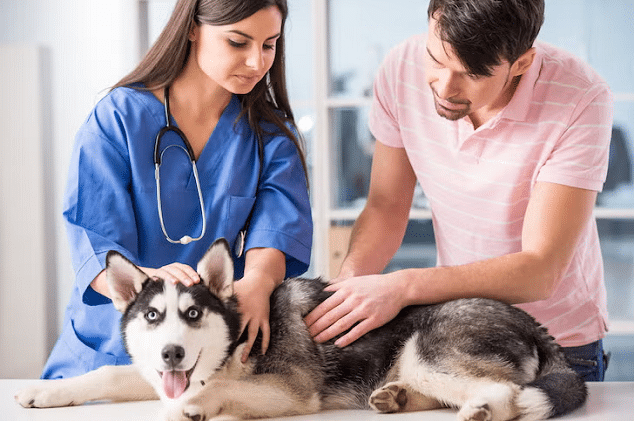Common Illnesses in Puppies and Their Symptoms

Is your puppy acting a little off lately? Puppies, like humans, can experience various illnesses as they grow. Their young immune systems are still developing, making them more vulnerable to certain conditions. Understanding puppies’ common illnesses and symptoms can help you react quickly and keep your furry friend healthy.
If your puppy shows any signs of illness, getting them checked at an animal hospital as soon as possible is essential. Early detection can prevent minor issues from becoming serious health problems. Let’s explore some of the puppies’ most frequent health issues and what to watch out for.
Parvovirus: A Serious Threat
Parvovirus is a highly contagious viral illness that affects puppies, especially those under six months old. It attacks the gastrointestinal system, causing severe vomiting, diarrhoea, and dehydration. In some cases, parvo can be fatal if not treated quickly. Symptoms to watch for include lethargy, vomiting, and bloody diarrhoea. If your pet shows any of these signs, it’s crucial to take them to the hospital immediately.
Kennel Cough: Common and Contagious
Kennel cough, or canine infectious tracheobronchitis, is a respiratory illness that puppies often catch when exposed to other dogs. This illness is highly contagious and usually spreads in places like dog parks, kennels, or doggy daycare centres. Symptoms of kennel cough include a persistent, dry cough, sneezing, and sometimes a runny nose. Most cases of kennel cough are mild, but it’s still a good idea to have your pet seen by a vet.
Distemper: Another Viral Threat
Canine distemper is another virus that affects puppies, especially those who have yet to complete their vaccinations. It’s a dangerous disease that affects the respiratory, digestive, and nervous systems. Symptoms include fever, nasal discharge, coughing, vomiting, and sometimes seizures. If you notice these symptoms, immediately bring your puppy to the hospital.
Worms: A Common Issue
Puppies often encounter intestinal parasites, such as roundworms and hookworms, which are quite common in young dogs. If left untreated, these parasites can cause problems with digestion and even stunt a puppy’s growth. Puppies often pick up worms from their mother or their environment. Signs of worms include a bloated belly, diarrhoea, vomiting, and a dull coat. Your vet can diagnose worms with a stool sample and prescribe treatment to eliminate the parasites. Routine deworming is essential for puppies, so ensure your vet schedules regular treatments.
Ear Infections: Painful and Irritating
Puppies with long, floppy ears are especially prone to ear infections. Moisture and debris can easily get trapped in their ears, creating the perfect environment for growing bacteria or yeast. An ear infection can cause your puppy a lot of discomfort. Symptoms include head shaking, scratching at the ears, redness, and a foul odour. If your puppy shows these signs, it’s time for a vet visit.
Diarrhoea: A Symptom, Not an Illness
Diarrhoea is one of the most common symptoms in puppies and can be caused by several factors. These include dietary changes, stress, parasites, or viral infections. While it’s often mild and resolves independently, diarrhoea can sometimes lead to dehydration if not managed properly. If your puppy has diarrhoea that lasts more than 24 hours or is accompanied by vomiting, lethargy, or blood, take them to the hospital.
When to Take Your Puppy to the Hospital
Knowing when to take your puppy to the animal hospital is crucial for their health. Anytime your puppy exhibits severe or persistent symptoms, such as vomiting, diarrhoea, or lethargy, it’s better to be safe than sorry. Puppies can deteriorate quickly, and a vet can provide the care needed to treat their illness.
Regular check-ups and vaccinations are also essential to prevent many common puppy illnesses. Conditions like parvovirus, kennel cough, and worms are treatable if caught early. If your puppy shows any signs of illness, don’t hesitate to visit the animal hospital. Your vet will help guide you through keeping your puppy healthy as they grow. Early treatment can make all the difference in your puppy’s recovery and future health.




